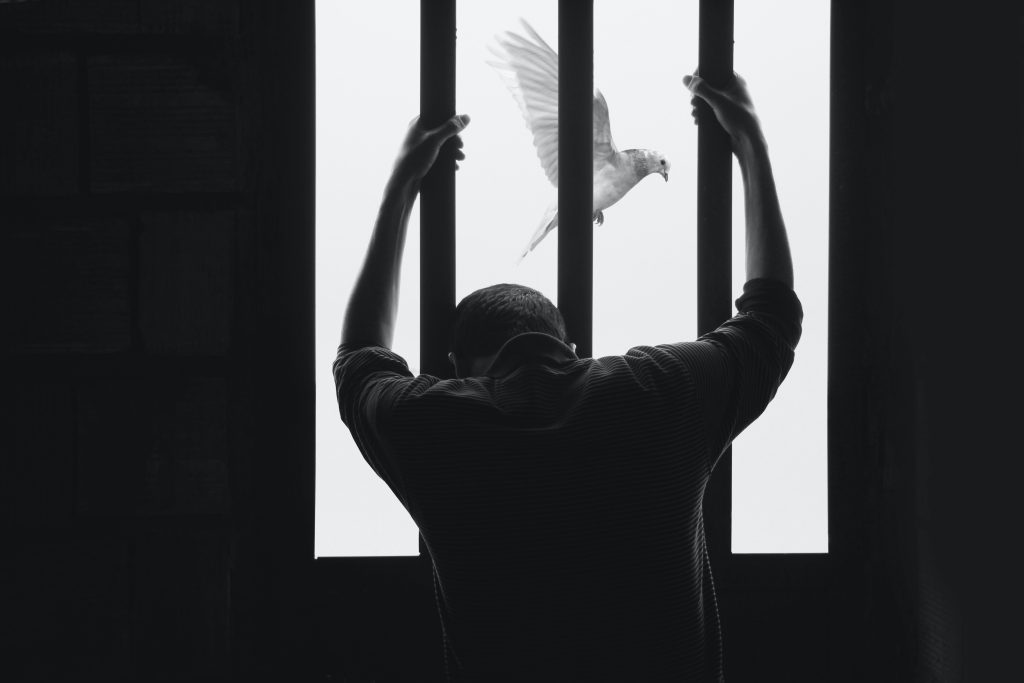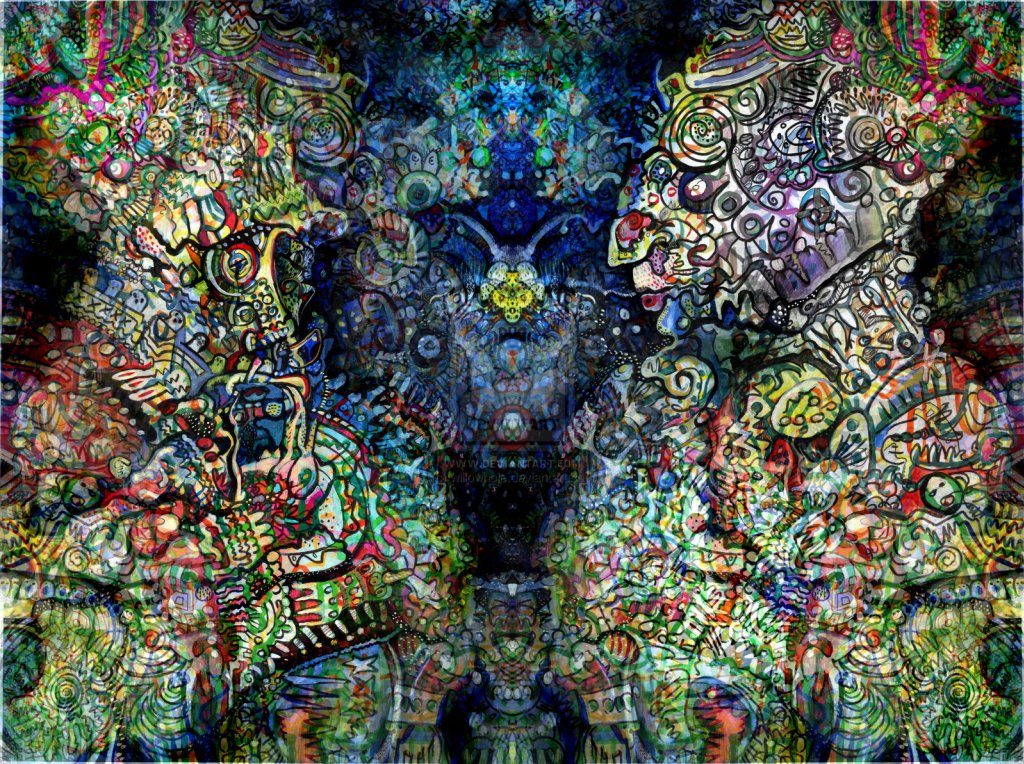The Four Freedoms and Artificial Intelligence
I was nine years old when, gazing at the sky, I had the first realization of my connection to the vastness of Life. I think everyone can remember a moment like that. And I am still routinely awed that the Universe exists, that Life exists, and I am somehow having an experience of the world, or as Scott Russel Sanders puts it, “the original world, the one that makes us rather than the one we make.” Recently, I read that human-made materials now outweigh Earth’s entire biomass – everything alive.
When FDR wrote the Four Freedoms, I don’t think he could have imagined the world we live in today, an increasingly fabricated world that often feels artificial and cold. I’m thinking particularly about artificial intelligence and its relationship to the theme of this Quarterly – FDR’s Four Freedoms: Freedom of Speech, Freedom of Belief, Freedom from Fear, and Freedom from Want.
You have probably heard of ChatGPT by now, “a natural language processing tool driven by AI technology that allows you to have human-like conversations.” It can explain concepts, troubleshoot code and tell stories too. It could also dramatically impact Freedom of Speech.
AI could impact free speech by manipulating public opinion or discourse. For example, if an AI system were used to generate fake news or social media posts in order to influence public opinion, it could create confusion and make it more difficult for people to know what to believe or make informed decisions.
That last paragraph was totally generated by ChatGPT. I did not write it.
And so, while I worry about school children turning in essays generated by AI, my concern runs deeper. Many AI systems ‘train’ on data from the internet, already an echo chamber for bias and rampant mediocrity, and as the saying goes – ‘garbage in, garbage out’. That is a concern when much of what we regard as news and analysis will soon be mostly generated by AI.
I asked my ‘chatbot’ about AI impacts on FDR’s Freedom of Belief:
AI algorithms could be used to manipulate public opinion by spreading misinformation or propaganda. This could lead to the suppression of certain beliefs and the promotion of others, which could limit people’s ability to form their own beliefs freely.
Well-stated.
I didn’t need to consult the chatbot about FDR’s Freedom from Fear. He was speaking specifically about fear of the State. It is clear that AI will accelerate and improve all forms of surveillance, the identification and targeting of certain groups of people, and the generation of propaganda. The disruptive effects this can have on our felt sense of wellbeing, trust in government or even in what constitutes reality have yet to be felt by most of us.
FDR’s Freedom from Want for life’s necessities is also at increased risk. As workers are displaced by AI and the digital divide widens, more and more benefits will flow to the wealthy and the privileged. Supply chains and the flow of healthy foods and water can easily be diverted by AI away from those most in need. I think when you read our interview with Nathan Halverson about his documentary The Grab, examining secretive land and water grabs by some of the world’s most powerful entities, you will learn a lot about how this is already happening.
When I chose FDR’s Four Freedoms as the theme for this edition of Kosmos Quarterly, I was interested in what they mean in our changing world. Eleanor Roosevelt helped to enshrine the Four Freedoms in the Universal Declaration of Human Rights, and they have been incorporated into the constitutions of most countries since 1948. They are more important than ever, yet more vulnerable than ever too. Of course the Four Freedoms leave a lot out – especially the rights of the Earth, including her plants, animals and minerals, as our Keynote by Eric Krans expresses.
The editorial decision to use imagery generated by AI in some of this edition’s features was mine. I found it fascinating as an experiment, in the same way that Rorschach’s inkblots say something about the unconscious parts of ourselves and patterns of form. There is also a piece called This Feature Is Self-Generated, which talks more about how images and music are generated by AI. I hope you will view these experimental excursions in the spirit they are intended, to increase our collective awareness of these technologies and touch their nascent potentialities.
Here is what AI does not ‘know’: the transformational experience of beauty, the felt thrill of creativity, languages of the wind, the voluptuousness of the sea, the tree-ing of trees, the bee-ing of bees, the gesture of the giraffe, the voice of the beloved, scent of the lilac, lift of the seabird, laughter of women working, smell of snow, a lover’s caress, the teeming soil, moonlight’s mystery, the pain of labor and joy of birth, shamanic vision, insight, love…freedom itself.
Kosmos always stands with Life, and the world that reveals itself to us without words. We pledge ourselves to the unitive mind of Love and all that should and must be saved on our precious planet. We will not get lost in technologies or abstractions about existence, but embrace Life lovingly, with all its joys and sorrows. This doesn’t mean we reject technology, only that we recognize it can’t save us from ourselves.
In this winter edition, please read about doing wild yoga, secrets of the mugwort plant, the origins of our Universe, the power of subtle activism, the sacred nature of the food we eat, and poetry that celebrates everyday experience. I want to thank our poetry editor, Carolyn Martin, for four years of service to Kosmos. Fifty years ago she was my beloved high school English teacher and mentor. Our circle together feels complete. Read her books of poems! You will enjoy them.
The Four Freedoms and Artificial Intelligence may seem only marginally related, yet each is a litmus test for our era. How we develop and implement each of them is a measure of our commitment to ethical and responsible decision-making. Both the Four Freedoms and AI can also be seen as sources of tension and debate, as they raise complex and often competing values and interests that must be balanced. Each reflect our collective will and priorities and have the capacity for enormous impact on lives. The former is inspired by something far greater than ourselves, the latter by our reflection in a broken mirror.
I’ll close with this beautiful quote by Scott Russell Sanders:
“I hunger for contact with the shaping power that curves the comet’s path and fills the owl’s throat with song and fashions every flake of snow and carpets the hills with green. It is a prodigal, awful, magnificent power, forever casting new forms into existence then tearing them apart and starting over… That the universe exists at all, that it obeys laws, that those laws have brought forth galaxies and stars and planets and—on one planet, at least—life, and out of life, consciousness, and out of consciousness these words, this breath, is a chain of wonders. I dangle from that chain and hold on tight.”







You are a postmodern angel, Rhonda!